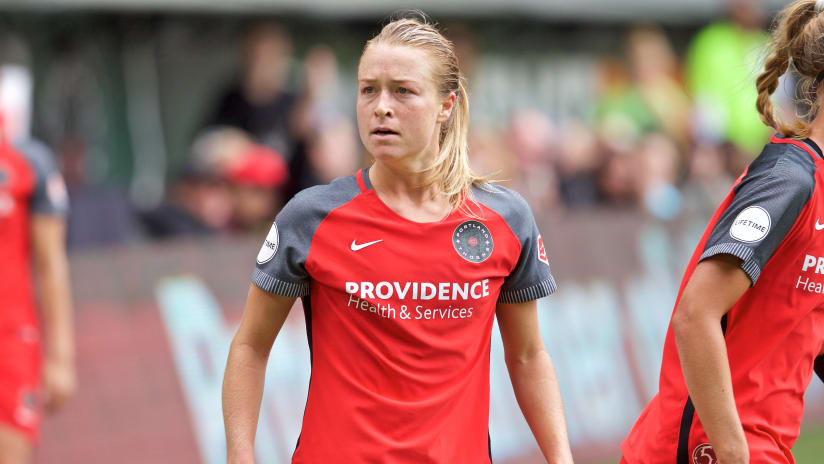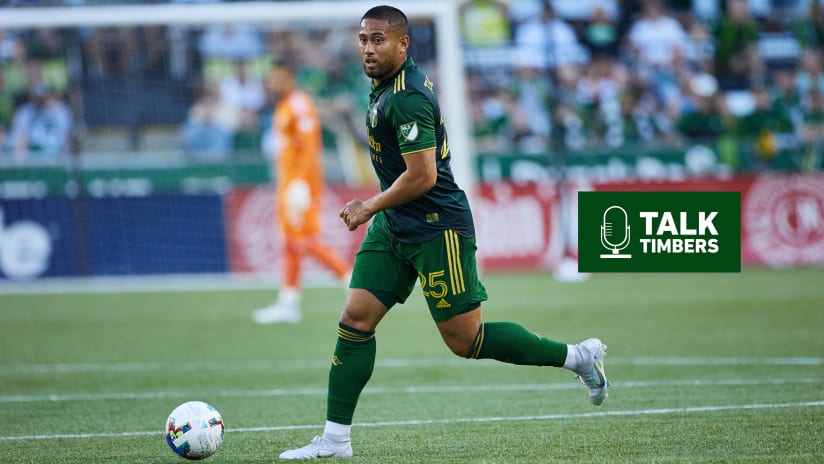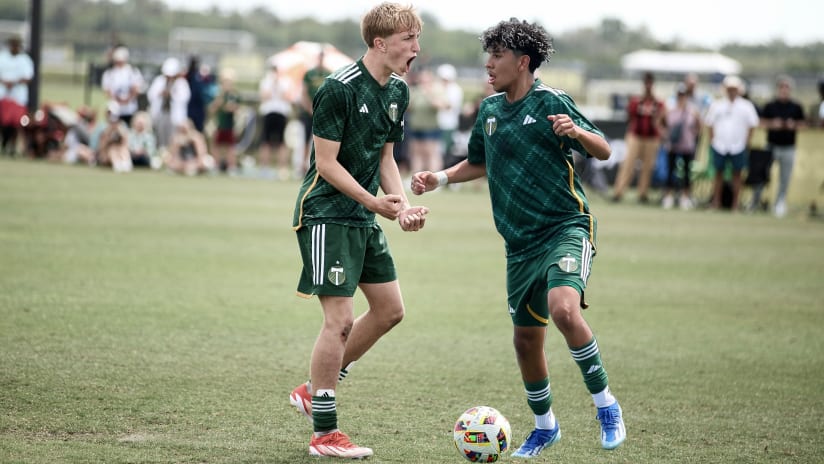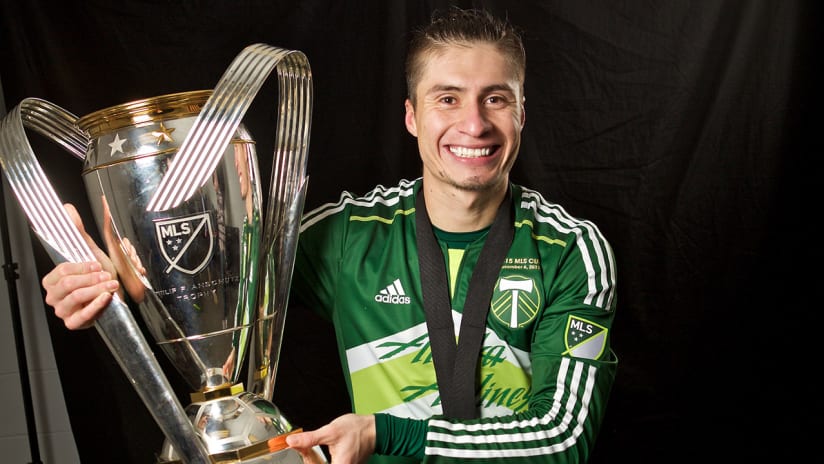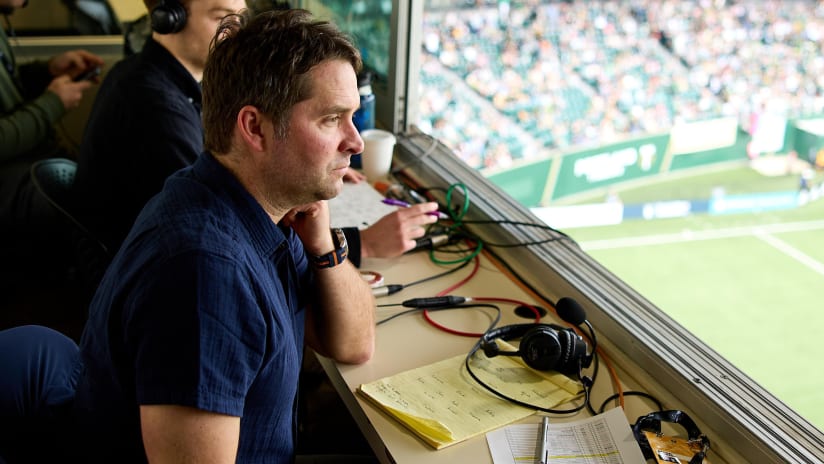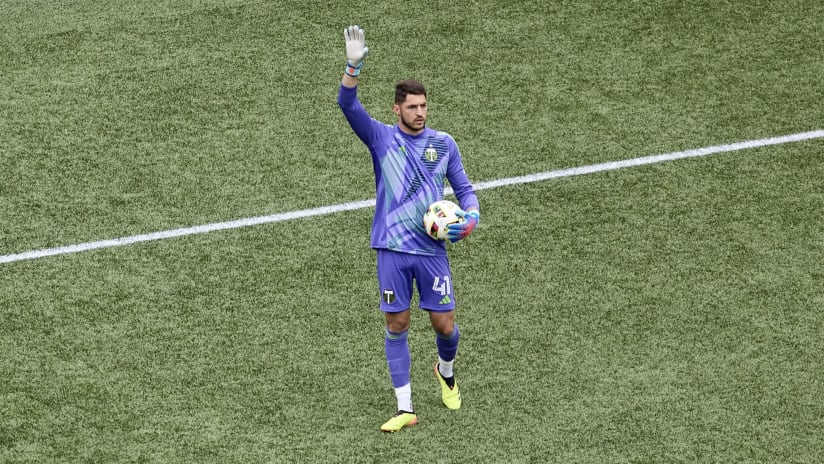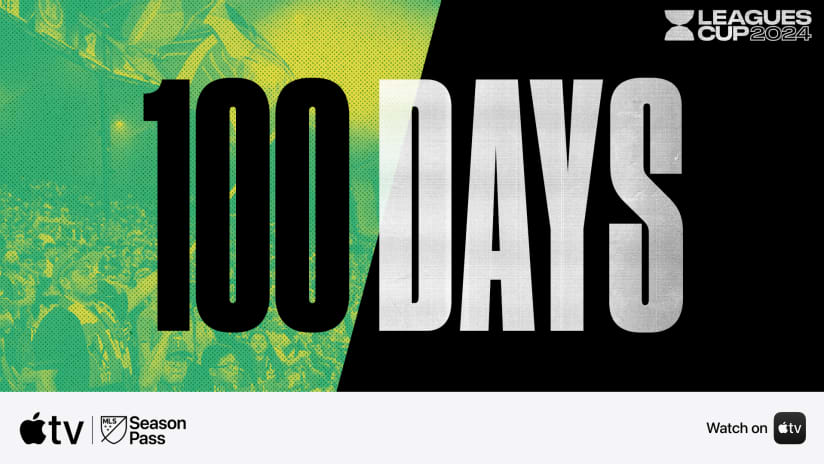PORTLAND, Ore. – There are two moments that capture the contrasts of Emily Sonnett’s last 12 months, the highs and the lows that the Thorns FC defender has experienced since the beginning of her second professional season.
The team-level high came on October 14, when the Thorns claimed their second NWSL Championship, but Sonnett’s individual crest may have happened a week ago, when a year of will-she, won’t-she drama surrounding her international prospects ended with a full 90-minute shift for the United States at right back against England on March 7 in the SheBelieves Cup.
The contrast came last July 1 in Seattle. That’s when Sonnett’s under-hit backpass at end of the first half allowed Megan Rapinoe to give the Reign 1-0 after 45 minutes. Portland had the better of the match, to that point, but would go on to lose, 2-0, giving Sonnett a moment that epitomized the first half of her season.
“I always tell people, the first half, trash,” she says of her play, doing so with the same irreverence as somebody reliving an uncomfortable moment from high school. Sonnett is that removed from her July 2017 self, so much so that it’s unclear how serious she is about “trash.” She wasn’t that bad in the first part of that season.
But as she talks it out and explains the turning points of her 2017 campaign, the description, although harsh, starts to make more sense. As the first-overall pick in the 2016 NWSL College Draft and somebody who was seeing time with the U.S. Women’s National Team before turning professional, Sonnett’s reality was one of raised expectations – of being an Olympic alternate for the USWNT before she’d fully established herself in the NWSL.
Those expectations were given new context over her first year-plus as a pro. A strong rookie campaign in 2016 also featured some aberrational errors, with those slips also creeping into the start of her 2017 campaign. By then, Sonnett was no longer being called in by U.S. head coach Jill Ellis.
It was only during the second half of last season that things began to turn around, when a renewed mindset coincided with progress on the field to, this winter, help her reclaim a place in the national team. Sometime after that moment in Seattle, everything clicked for Sonnett, who played out the rest of the season as one of the best defenders in the NWSL.
“The second half is when I think I started to really kind of focus and really take it as marginal gains,” Sonnett explains, focusing on two themes that reoccur when talking about her progress. “That’s how I would break it up: trash, not trash.”
Trash versus not trash makes for a nice, clean dichotomy, but it’s also one that glosses over Sonnett’s day-to-day struggle. And that’s what 2017 truly was for the 15-time international: a struggle. The issues she had to address went beyond merely playing better. Having all the physical tools to be a standout, Sonnett’s inconsistency came back to one thing: the mental side of the game.
“I think it’s always that thing, I knew I’m at this level – I’m at a high level,” she says, looking back on early 2017, “but I’m plateauing. How do I get to the next level?”
It demanded attention to detail. From the moment she left the University of Virginia, Sonnett was already one the NWSL’s best defensive talents, but with high expectations for both club and country, she was being challenged to bring it all together. She needed to raise her game the extra five, 10 percent in all facets to go from promising to exceptional, but with her confidence shaken over the first year-and-a-half in the NWSL, she also had to regroup.
“From college to pro, the mental game is a lot more than what people make it out to be,” Sonnett says. “People do always say it’s important. But it is really important, because you could find yourself not doing well, or you’re not having fun…
“I think first year, consistency is a big one. Just mentality in general, if you’re not having a good time, that’s not going to transpire into consistency. And if you’re not consistent, you’re not going to play, and you’re not going to show well, and that’s what it comes down to.”
Those moments Sonnett wasn’t having a good time largely came down to herself. She was dwelling too much on the bad, overlooking how often she was able to compete with and best the NWSL’s most adept attacking talents, and creating a defeatist attitude. Like most players coming out of college, she hadn’t yet developed the mental tools to deal with the occasional failures that come along with facing world-class players and coaches on a week-in, week-out basis.
Compound that with the expectation that she would hit the ground running as a U.S. international, and Sonnett was beating herself up with her own high bar.
“I think, not just my rookie year but now, this past year, my mental side [was crucial],” Sonnett says, reflecting on her path over the last two years. “I’ve read a couple of books -- Mark gave me a book, it’s called The Inner Game of Tennis. They use tennis as a medium to talk about how you talk to yourself, because that’s also really important. One day you’re not performing and then, oh no, you’re getting down on yourself. That’s not going to be good. Then you start believing what you’re saying.”
For an athlete who approaches the game like Emily Sonnett, the role of confidence cannot be overstated. While the 24-year-old is not physically imposing (officially listed at 5-foot-7), her speed and athleticism allow the physical part of her game to be dominant. But that dominance only comes through when she leverages those traits quickly and with confidence.
In order for Emily Sonnett to be successful, she has to be decisive. And it’s impossible to be decisive when you don’t believe in yourself.
“People say it’s a big part of the game, but it really is a big part of the game,” Sonnett reiterates. “I think that is really what my growth was. Not all. There’s obviously physical, technique and things, but my mental side of the game, I think, grew tremendously over the last year, realizing what I’m not good at, what I need to improve, and really breaking it down, in terms of little goals to reach the bigger goal.”
It goes back to one of Sonnett’s main themes: little goals. Sometimes she calls it marginal improvement. Other times, it’s marginal gains, or purposeful practice. Either way, the subtext is clear. She needed to slow down, think about her game in terms of small, obtainable improvements. She needed to be beyond-a-doubt confident in all aspects of her game, even the smallest parts.
That’s where Thorns head coach Mark Parsons stepped in.
“I had a conversation with Jill, and it was, here are the areas of improvement, and I need to see those areas improve,” Sonnett remembers, recalling her conversations with the U.S. national team staff as she began losing her spot in the team. “Naturally, I come to Mark and say, 'These are the areas I need to improve.' I think him setting me up with the right training, having such a high-quality group to train with is what made my development take that next leap.”
That, to Sonnett, is something that’s often overlooked about her year’s ascent. Most fans around the country view her through the lens of the national team, but her day-to-day reality is in Portland. It’s where progress happens, for her, and to the extent her national team opportunities increase, it will be because of what’s happening on the ground with the Thorns.
“When people ask me about the last year, the only thing that comes to mind is me not being in the national team and what I had to do to get back there,” she explains. “The Portland Thorns and the coaching staff, that was a big part of my development, addressing what needed to get better. This organization, this practice is what made me better in addressing those issues to get me back to where I am now.”
“[Parsons] really slowed it down, for me, and made me take it day-by-day to make me get those marginal gains to make me jump up to the next level.”
Now, that next level is back in view, something Sonnett confirmed over the second-half of the last NWSL season and built on during a dominant, confidence-building stretch in Australia’s W-League. And for two camps in a row, now, Sonnett has been a part of the U.S. national team’s roster, with her final performance at this month’s SheBelieves Cup projecting her as a more consistent part of Ellis’ group.
While “trash” may have always been too strong, it does speak to the two standards in Sonnett’s mind: where she should be, and where she was. After a year’s worth of battles, Emily Sonnett is back where she belongs.

